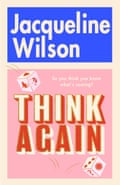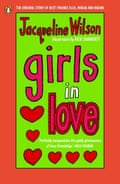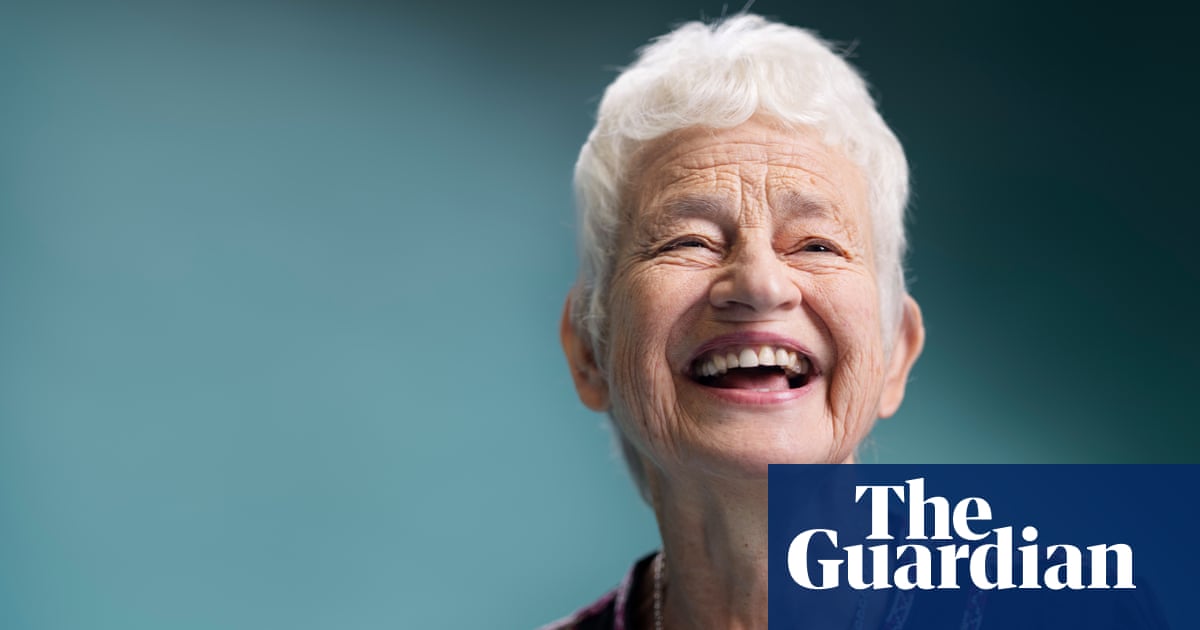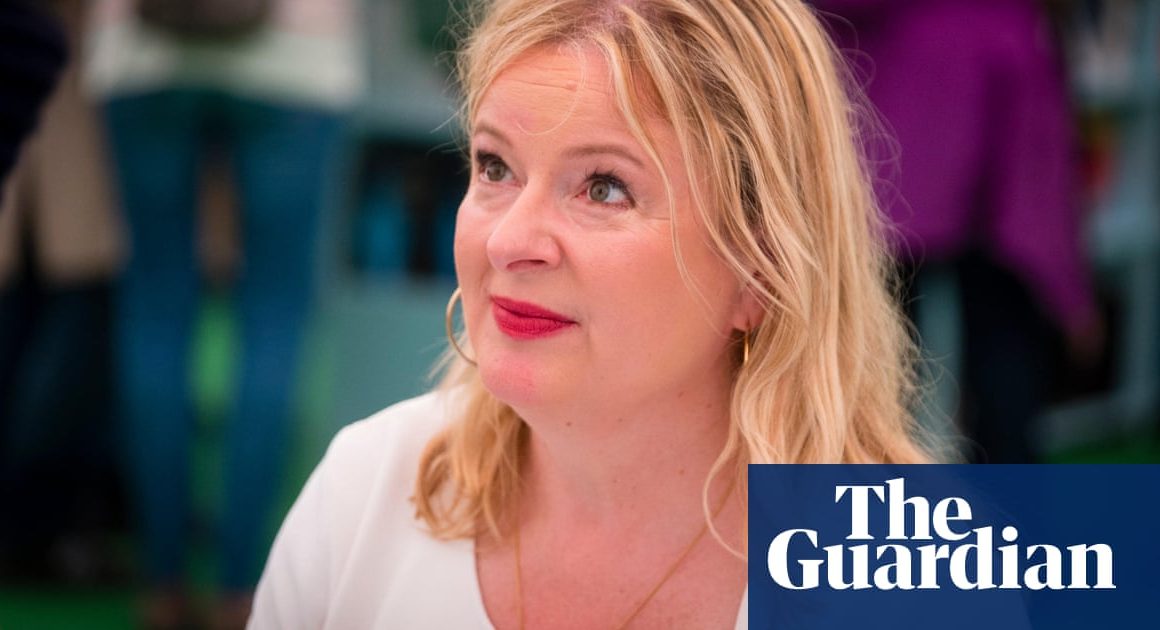Millennial women everywhere rejoiced when Jacqueline Wilson announced a new book earlier this year. Not only is Think Again a novel for adults, but it is also the Tracy Beaker author’s fifth novel in her hit Girls series, 22 years after the last one was published.
Wilson has written more than 100 children’s and young adult novels, but her biggest boom was between 2000 and 2010, when her books were the most borrowed from libraries. For those of us reading Wilson’s books back then, it felt like she was acknowledging our anxieties, soothing but never sugarcoating things. She was funny, too, and opened up our minds to all our differences.

The need for her work was clear: like a lot of my peers, I spent a lot of my adolescence hating things. I hated my body. I hated not having a boyfriend (but I also hated boys). I hated that my dad left. I hated my mum for, well, no valid reason. I hated that I didn’t have enough friends. I hated that every girl in the world except me seemed to have a pair of Miss Sixty jeans.
I wasn’t alone in feeling like this; growing up in the 90s and 00s was tough for all who walked it. We were told to be skinny by magazines that marked a red ring of shame around women’s tummies. Primetime telly showed us that normal families look and live a certain way. You were a “slut” if you so much as kissed a boy but “frigid” if you didn’t. Talk about our mental health? Definitely not! And things were about to get worse, with MySpace and Facebook marking the dawn of online comparison culture.
Wilson got this. Many of her novels during this time tackled such teenage tribulations with wonderful but flawed characters. She trusted her readers would be able to handle complex and dark issues, too: two sisters look after their bipolar mother in The Illustrated Mum; a girl struggles with her parents’ divorce in The Suitcase Kid; a family lives in temporary accommodation in The Bed and Breakfast Star; a girl grieves her best friend in Vicky Angel; and a teenager in care searches for the mother who abandoned her in Dustbin Baby.

The books that captured teen hearts the most, though, were the Girls quartet. The first, Girls in Love, follows 13-year-old Ellie as she pretends to have a boyfriend in order to fit in with her best mates Magda and Nadine. We continued to hang out with the trio in Girls Under Pressure, Girls Out Late and Girls in Tears. They had ambitions, insecurities, arguments and sleepovers. They made mistakes, argued with their parents and fancied bad boys. With each book, we grew up with them.
Revisiting them ahead of Think Again’s publication this week has been a cathartic, therapeutic experience. It took me back to school, sleepovers, shopping trips, those first nights out – and the lies we told our parents. It’s quite incredible how enjoyable they still are to read, and it is a bittersweet feeling: remembering that longing to be an adult, while also clinging on to the comforts of childhood.
There were hard parts, too: I shed tears over the pages of Girls Under Pressure, in which Ellie develops an eating disorder. The character’s fixation on weight, along with her feeling that she is lesser than her friends and not good enough for boys, was all too relatable.
The return of the Girls series at this particular moment in time is a savvy move: 00s nostalgia is rife. Like Ellie, Girls readers so badly wanted to grow up, and here we now are in the midst of cost-of-living, climate and housing crises. Our anxieties have worsened; the adult lives we were promised still seem out of reach. We are instead in search of the same comforting balms from our youths: Sugababes and Girls Aloud reunions and the return of those low rise Miss Sixty jeans (I’m happy not to own a pair of this time round). Of course we want to reunite with Ellie, Magda and Nadine, too, if only to see if they’re handling this any better than we are.
after newsletter promotion
At the beginning of Think Again, we meet Ellie in her rented London flat, about to celebrate her 40th birthday. She is single, has a daughter at university and works as an art teacher, while part-time freelancing as an illustrator (at the Guardian!). Nadine, meanwhile, is as cool as ever, working as a producer and enjoying casual sex with no desire to start a family. And then there’s Magda who, after two divorces, swears it’s third-time-lucky with her new man and his two kids. So far, a much more nuanced and refreshing antidote to the trendy, wealthy hot mess millennial protagonist we have come to know in recent years.
Ellie encounters two people who will change her life, along the way navigating doubts, desires and dreams – some new and some not too dissimilar to when she was 14. She’s achieved a lot but she definitely doesn’t “have it all” by 40. She questions her next big steps. She worries about her ageing father. She frets about paying the rent. She is hit by loneliness and feeling left behind – something that my very lonely generation knows well. Wilson, once again, faces us with the tough points, the big and the small.
That’s not to say there aren’t questionable decisions by Wilson: a morally ambiguous storyline involving a teacher dating his former school student is barely challenged. Then again, she never shies away from the grey areas. Take how she also writes about Ellie still being slightly obsessed with her weight: it might not fit with today’s “body positivity” movement – but the reality is that women who grew up being told to be thin will probably never forget it, no matter how smart they are.
The most poignant part of the reunion, though, comes with the knowledge that Wilson’s own life has influenced her work – particularly stories about difficult childhoods. “It wasn’t a terribly sad, deprived childhood, and there were some happy times, but my parents hated each other,” she told Radio 4 in 2022. In 2020 she revealed that she had been living with her female partner, Trish, for 18 years. This experience clearly shapes a queer love story in Think Again and it is beautifully told.
There is real comfort in feeling seen again in these adult lives that are just as confusing, wonderful, unfair, unpredictable and full of potential at 40 as they were for our teenage selves. But everybody is doing OK. You’re doing OK. And that reassurance, really, is what we’ve always gone to Wilson for.












